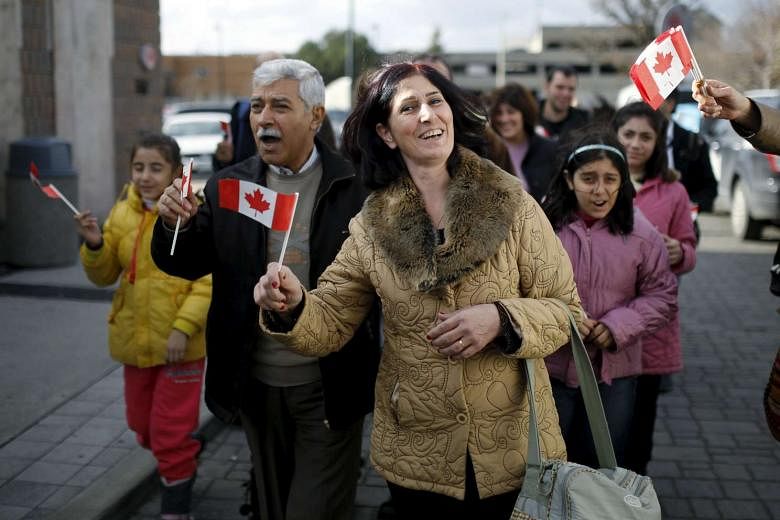GENEVA • Migrants are increasingly participating in a globalised economy, notably in the services sectors, according to a report released by the International Labour Organisation (ILO).
The ILO shed light on new data which quantifies for the first time the extent to which a global migrant workforce estimated at 150.3 million people - 44 per cent of them women - is carving a professional niche in the countries receiving them.
At a time when mass migration, heightened by the conflict in Syria and economic crisis, has become a political hot potato, the ILO said on Wednesday its calculations showed migrant workers make up 72.7 per cent of a global migrant population which it puts at 206.6 million people of working age.
Ms Manuela Tomei, director of the ILO's Conditions of Work and Equality Department, said she believed the data, which relates to 2013, would allow for "better-informed debates" about migrants in general and their contribution to the societies they join. "These are people who make important contributions to the labour market and the economy of countries of destination," Ms Tomei said.
"We believe the most important contribution is that very often the debates surrounding migration are inflamed debates and are characterised by a mismatch between perceptions and realities.
"So we believe and we hope that these estimates may indeed help in terms of providing further insights and greater clarity to this debate."
For ILO statistical director Rafael Diez de Medina, "this report sets a new standard in the quest to have sound global figures to guide policymakers".
He said the issue would, over the coming years, be at the forefront of the development agenda.
The ILO estimates the total global migrant population at 232 million people but its figures do not show what proportion have migrated illegally or at least not through an established, legal process.
However, Ms Tomei referred to previous ILO findings estimating "irregular migrants" at "between 10 per cent and 15 per cent of the total" - including people without proper paperwork or those who are living in a country after overstaying a visa.
The ILO said its findings suggested migrants generally do not compete for employment with native populations.
But the ILO warned there was a need to monitor domestic work, describing a sector which typically sees a strong concentration of migrant women, as needing regulation due to "relatively low visibility" and prone to "multiple forms of discrimination".
AGENCE FRANCE-PRESSE

